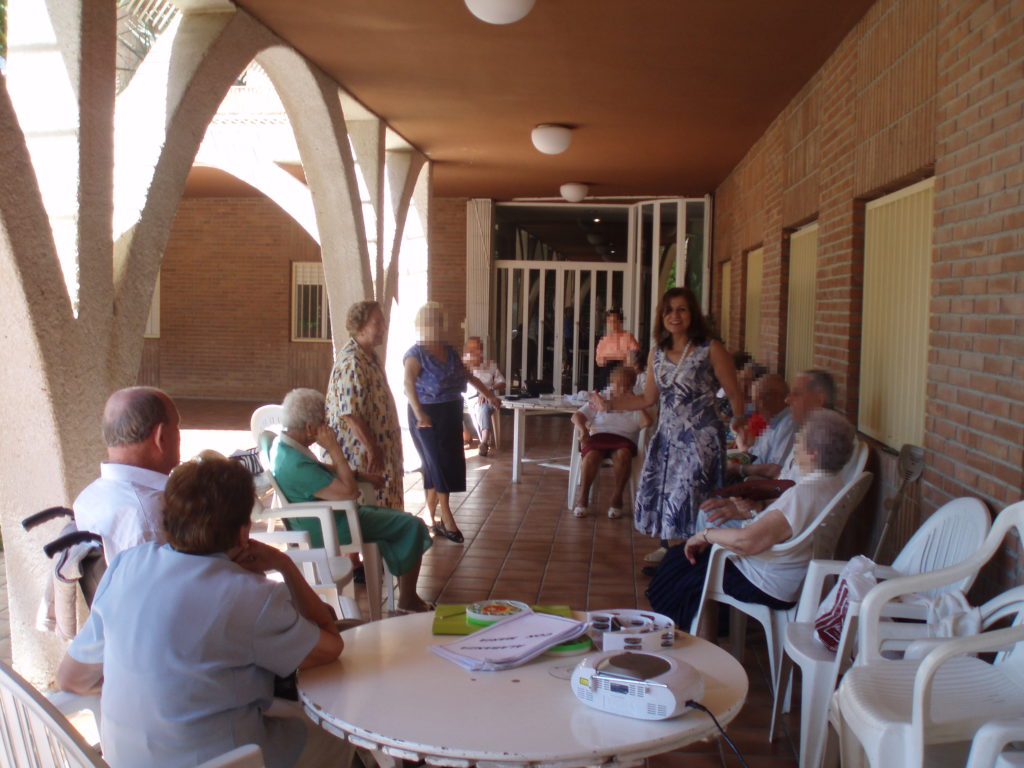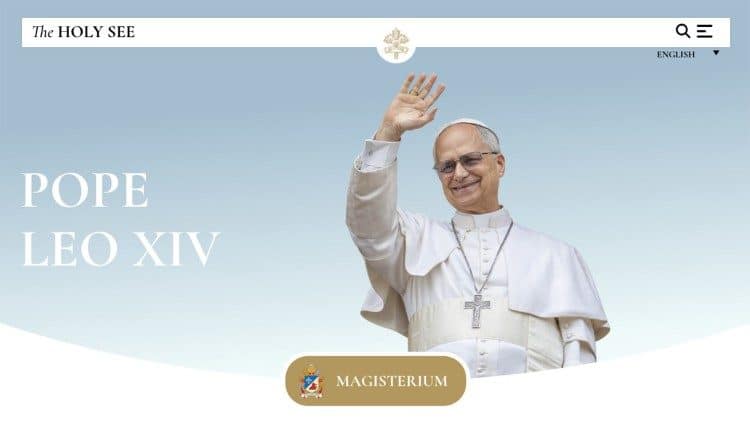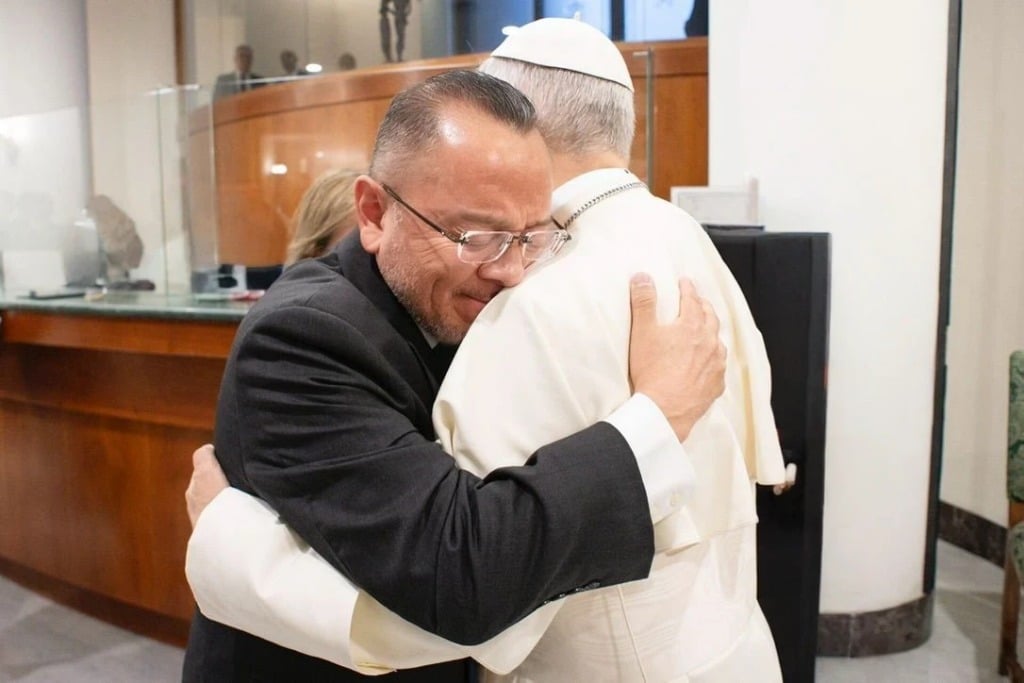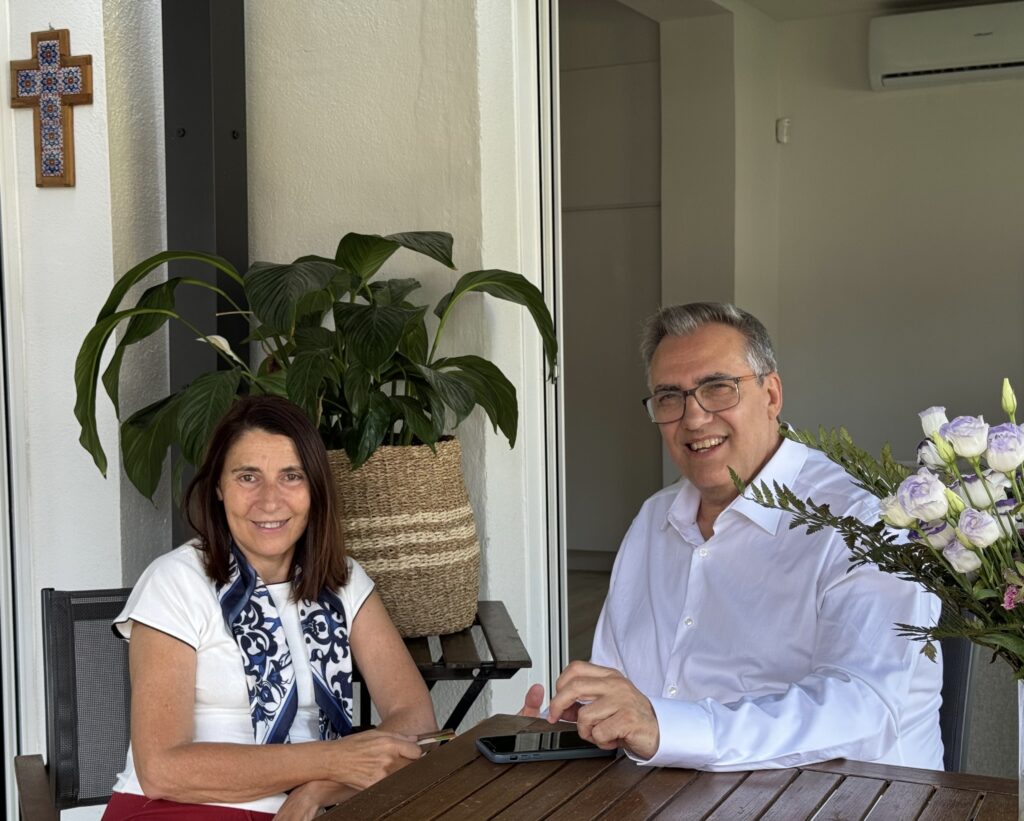‘To Take the Joy of the Faith to the Sick’
On the World Day of the Sick, We Talk with Maria Dolores Tejada, Founder of ‘Praise with Mary’

Maria Dolores Tejada, Founder of “Praise with Mary,” an Association dedicated primarily to assisting spiritually the sick and the elderly explains in this interview with Exaudi that it’s about “taking the joy of the faith, in a simple but profound and dynamic scheme of prayer, singing and contemplation of the Word, very appropriate for the elderly, the sick and all those suffering, which reaches hearts a lot, alleviates pain and gives consolation, healing, and hope.”
The “Praise with Mary” Association wishes to take the joy of the faith to Residences and Hospitals. “Our mission is to “Praise with Mary” for her healing and consoling power with the sick, the elderly and all those suffering. And also to take individuals and families to the Virgin Mary, through Consecration to her Immaculate Heart,” explains the Association.
A joy of the faith that has always accompanied Maria Dolores through this apostolate that started on a key date, May 4, 2003, with Pope Saint John Paul II’s last visit to Madrid, where he canonized five Saints. In that historic moment, Maria Dolores’ personal call began to serve the sick.
Here is a translation of Exaudi’s full interview with her.
* * *
Exaudi: How did your personal call of service to the sick begin?
Maria Dolores Tejada: It began on May 4, 2003, during Pope Saint John Paul II’s last visit to Madrid to canonize five Sains. Given his call to be witnesses of the faith, I felt I should do so, but especially in the world of suffering, which is when the Lord is needed most, and that’s why that day I thought of the elderly, who are also sick and generally with little hope.
Exaudi: Tell us what “Praise with Mary” is, how it was born and what role you have in this Association, whose protagonists are Saint John Paul II and the Virgin.
Maria Dolores Tejada: The seed of “Praise with Mary” was born that May 4, from the hands of the Virgin, who has been so important in my life, and of Saint John Paul II, who has left us so many teachings on pain and suffering with his life, words and personal witness. Sometime later, it became a firm project of mercy and evangelization at the service of the Lord in the weakest of His children, the elderly in Residences, and afterward, the sick in Hospitals. And now, since the start of the pandemic, also in parishes, to which we go increasingly in several provinces of Spain, where there is also so much pain not only because of sickness but for other reasons, such as loss of loved ones, problems of all sorts — family, economic, anxieties, etc. We try to take the joy of the faith, in a simple but profound and dynamic scheme of prayer, singing, and contemplation of the Word, very appropriate for the elderly, the sick, and all those suffering, which reaches hearts a lot, alleviates pain and gives consolation, healing and hope.
My role as Founder and President is to watch over the charism of “Praise with Mary,” to organize and coordinate volunteer work, open new sites, residences, hospitals, and parishes to engage in praise; organize retreats, consecrations to the Virgin, and participate actively by going to the Centers.
Exaudi: How do you accompany the sick and how do they respond to your presence?
Maria Dolores Tejada: We organize visits to the Residences of the elderly and to Hospitals, with the approval and support of the hospital chaplains, Directors of Residences, and of parish priests. This “Praise of Mary” that we do with them, has been well received from the beginning among the elderly and the sick, to which is added our presence and closeness.
In the Residences, which we want to return to when the pandemic is over, the word we hear most from the Directors and carers is that the <residents> have “flowered,” with a visible joy on their faces and in their state of mind, joined to the words of the elderly on the good it did them and their desire that we return. In the hospitals and parishes, we pray before the Most Blessed Sacrament, and the spirituality and scheme being deep down the same, other sorts of prayers and songs are engaged in, which are more appropriate for Praise and Adoration before the Most Holy Sacrament.
Exaudi: “Praise with Mary” does not only keep company and console the sick and the elderly. Why is it a true instrument of evangelization?
Maria Dolores Tejada: Indeed, not only are the sick and elderly accompanied and consoled, but it’s a whole evangelization for them, making them see how important they are for God, for the Church and for all; that they still have a mission to fulfill by praying to the Lord and offering their pains and situations. It’s to live that Praise, from the hands of Mary, it’s that touching of Heaven, and of bringing happiness in moments of their life when they need it very much so that they can feel and live the love of the Lord and of the Virgin.
Exaudi: What role do the Association’s volunteers play? Tell us about the first volunteer you had who arrived directly from Lourdes . . .
Maria Dolores Tejada: The volunteers are very important and necessary for the Association so that this lovely project of Heaven reaches those it must reach. And it also does them much good, as they express in their testimonies when engaging in praises with Mary with the elderly and the sick. They also say how they have advanced in the faith, in their love of God and of the Church, which leads them to receive the Sacraments more often. “Prise with Mary” is a work of evangelization and growth for all those that take part in it, being volunteer work for all ages, also for young people.
The first year I went alone to a residence, the first residence, and I saw how as the months went by, more elderly people came increasingly. When I was finishing the course, a lady joined me who was the first volunteer, cured miraculously in Lourdes from a terminal illness. Then, over time, many more volunteers came, and so we were able to go increasingly to more Centers, being in a very great moment of expansion, in several provinces of Spain, when the pandemic started.
Exaudi: This Movement was able to reach Hospitals and Residences. Why is that attention to the sick necessary and what can we do in our day-to-day not to neglect these needs?
Maria Dolores Tejada: Already from the beginning the doors of Residences opened to us and then those of Hospitals, something for which to thank the Virgin because this work is entirely hers, and Hers for the Lord. I think the world of pain needs greater spiritual attention, which should be fomented more because I’m certain that many more people would offer themselves as volunteers, but they don’t do so because they don’t know this reality, which is found behind walls, something that with the pandemic has become very palpable. And the sick and the elderly need to be evangelized in their pain and illness, learn about God’s love, the importance of their life for the Church and for brothers, for their families.
For many, it’s the last opportunity to turn to God and for others who have been practicing, not to estrange themselves. My years of experience with them have made me see something that’s very sad that, except for Residences run by Religious Orders, the others, which are the majority, have little or no spiritual assistance; they forget God. Seeing all this, one feels motivated to spend oneself trying to do something for them, and what is better than to take to them the joy of the Lord and of the Virgin, which will fill their great affective and spiritual need, and give them the meaning of their life and strength, so that they do not give their consent to something as terrible as euthanasia, to put an end to their life, outside of God’s plans, which is becoming a painful reality, along with abortion.
Exaudi: Pope Francis wants the 30th World Day of the Sick to “help us to grow in the service and closeness of sick people and their families.” What message do you consider important to transmit on February 11, Day of the Sick?
Maria Dolores Tejada: The Hoy Father’s message says it all. He’s always close to the world of pain, to the word of the existential peripheries, and all his messages are clear in this regard. He invites us to be messengers of joy and hope, taking Christ to the most underprivileged and suffering, and also to their families. We must pay attention to Pope Francis, behind whose words the Heart of God beats.
I think the message would be not to get used to sickness, to tragedy. For two years we have been talking only of the number of the sick, of the dead, of the economic and social crisis. All this is true, but we should look at the world of pain, of the cross, with other eyes, and value it more for its redeeming sense, because Jesus Christ saved and redeemed us on a Cross and, at the foot of the Cross, was the Virgin Mary, Co-Redemptrix with Him. No one wants pain, but we must know that, when it comes, it must be united to the Crucified Jesus, and that embracing of our cross to His makes our life co-redeeming with Christ.
Moreover, by doing so, the Lord takes our cross and helps us to carry it, the cross no longer makes us fall but becomes more bearable because it looks to the light, to the joy and hope of the resurrection. And thus one can live, as the Saints, joyful in pain, being witnesses before a world that doesn’t want to know anything of the cross, and bear our crosses with dignity and help brothers to bear theirs. This is what we do in “Praise with Mary,” and what we say to our elderly and sick to do. And the result is impressive and encouraging; it’s to see the Risen Jesus in them; it’s to live Pentecost in every “Praise of Mary,” in which all, sick, elderly and volunteers receive the gift of the Holy Spirit to be able to bear illnesses, old age, pains, and problems, transcending them and looking on High with hope.
Exaudi: In the first part of the Pope’s Message for the Day of the Sick, he talks about being “merciful as the Father.” How can we practice mercy and how do we do it?
Maria Dolores Tejada: We speak a lot about mercy and it’s not always known that for me, for instance, mercy is to have a compassionate and merciful heart as that of our Heavenly Father; it’s to live in union with the Heart of Jesus and the heart of Mary, the Sacred Hearts, to which “Praise of Mary” is dedicated. Almost all of us volunteers are consecrated to the Virgin Mary and part of the “Praise with Mary” charism is to foster Consecrations to the Virgin, knowing that our Mother will then take the consecrated hearts to Jesus’ Heart because the two Hearts are united. And thus it’s very easy to have these dispositions of mercy, which sympathize in face of brothers’ pain.
“Praise with Mary” is a missionary work of prayer and mercy, which in 2016, the Year of Mercy proclaimed by Pope Francis, received Heaven’s seal with the Ecclesial Approval of May 13, the feast of our great Lady of Fatima, this work being also of her Heart of Mother that has compassion and sets out, as she did on her visit to her cousin Elizabeth, forgetting herself and she continues to do so — and we do with Her — to alleviate and heal the pain of her children, especially those that suffer most and the neediest. And to sing with them the song of praise, her Magnificat, proclaiming the greatness of the Lord and the mercy that has been poured on all, every time that the Praise of Mary is expressed. This is the charism of “Praise with Mary.”
Translation by Virginia M. Forrester
Related

A Peruvian redesigns the Vatican website
Exaudi Staff
11 June, 2025
2 min

Leo XIV: An Undeserved Gift for Latin America and the World
Exaudi Staff
10 June, 2025
10 min

Come to me and I will give you relief
Albert Cortina
09 June, 2025
9 min

‘With the presidential elections in Poland, the future of the European Union is also at stake’
Exaudi Staff
14 May, 2025
6 min
 (EN)
(EN)
 (ES)
(ES)
 (IT)
(IT)

